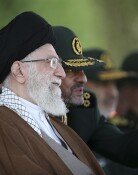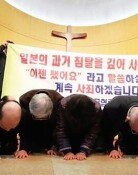Fake Residential Registration
Two law professors have different views on the fake residential registration of high-ranking officials to undergo confirmation hearings at the National Assembly. One professor said, No fake residential registration can be justified given the purpose of a confirmation hearing. You should think about the sense of justice that people generally have. The other said, You should make a different judgment depending on the gravity of each fake residential registration. Limiting fake residential registration for his or her childrens education could even be considered unconstitutional. The registration of a fake address for his or her childrens education should be seen differently from that for real estate speculation. Of course, nobody can say fake residential registration for a childs education is better than that for real estate investment. In the past, many people commonly changed their residential registrations for the purpose of qualifying as a non-homeowner to buy a bigger apartment.
Culture, Sports and Tourism Minister-designate Shin Jae-min, National Tax Service Commissioner-designate Lee Hyun-dong, and National Police Agency Commissioner-designate Cho Hyun-oh submitted fake residential registrations. Though they did so at different times, the purpose was to provide their children with a better educational environment. Supreme Court Justice-nominee Lee In-bok once did the same to buy real estate, but the report on the confirmation hearing was adopted Monday at the National Assembly. Though the nominees apologized, fake residential registration is still a crime subject to up to three years in prison and a fine of 10 million won (8,400 U.S. dollars). More than 5,000 people have been punished for fake residential registration over the past decade.
A source from the presidential office said, Our internal guidelines are to allow fake residential registration if related to education, but not for moneymaking. Even President Lee Myung-bak committed fake registration five times for the education of his three children. Thirteen former and incumbent high-ranking officials for the Lee administration committed the same crime for one reason or another. They include even an attorney general and prosecutor general.
The huge gap between the law and peoples negative perception of fake registration should not remain intact considering the purpose of a confirmation hearing or the impact on the rule of law. This matter requires a debate to create a clear standard that screens out unqualified officials. If fake registration for education is deemed acceptable, the law should be adjusted accordingly. But officials must follow the law more strictly than ordinary citizens.
Editorial Writer Lee Jin-nyong (jinnyong@donga.com)







